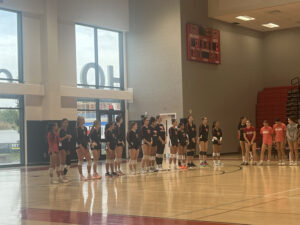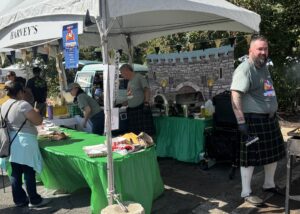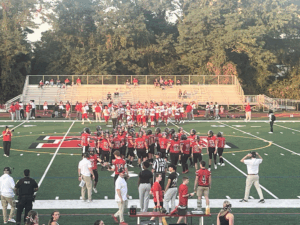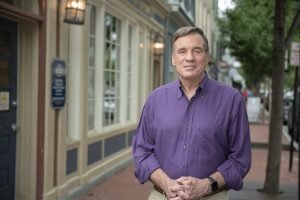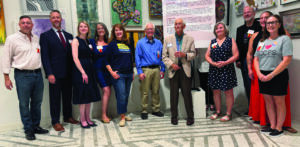Matt Abel, an 18-year-old senior at George Mason High School and member of the Transition Falls Church movement, put together a community screening presentation Feb. 18 of the documentary, “In Transition 1.0,” a film that introduces audiences to issues like climate change and peak oil.
“What I see the transition movement to be,” he said, “is an almost community renaissance of culture, economy, and energy. A way for us to make our local community, around the entire nation, more sustainable and able to make the things they need more. It’s about getting plugged in to our neighbors and not Jersey Shore. It is a response to climate change, but it’s meant to be a thing to get our local community more tight-knit and intertwined.”
Abel first became interested in the movement after his teacher, Jamie Scharff, showed a film called “The Economics of Happiness” in class. Abel found much of the movie, which covers the problems of globalization and economy, disheartening.
“But in the end, it talks about the different organizations that try to do positive work in local communities. It showed Detroit gardens made out of parking lots after big banks foreclosed. It was really inspiring,” Abel said. “We are really dedicated to the things we want, like Halo 3 or getting into college, but what if we harnessed dedication from kids, and the people in the community, and put it towards something that could create positive change in the community?”
Soon after, Abel began to investigate sustainability programs and stumbled upon “The Transition Handbook” in his local library. The book details the process of starting up a community-wide Transition movement. The book also informs readers about sustainability and the threat of peak oil and climate change.
The movement initially began as a school club at George Mason made up of a few of Abel’s friends, but Abel says the group is growing beyond those origins – expanding outside the school and involving underclassmen who will guarantee the group will go on after the founding seniors graduate. The group has even received support from members of the City of Falls Church’s Environmental Service Council.
Abel says that the City – with its Farmers’ Market and seed swap – is already involved in the kind of community-based sustainability projects that the Transition movement recommends.
“It’s really exciting that there’s already sufficient groundwork and there are people who have been in the trenches for years doing work,” Abel said. He added that the group seeks to connect potential collaborators on Transition projects, collaborate with business leaders to localize the economy and make area businesses more sustainable, and promote moving the City toward sustainable energy production and consumption.
“It’s a long-term project, of course, but we’ll hopefully have enough people in the summer to officially unleash the project to the community and say, ‘All right, this is in your hands now.’ They will form groups in water, energy, transportation [and others] and act as a catalyst to get the community to do positive work,” Abel said.
While Abel believes some resist getting involved with sustainability movements because they lack the confidence that they can make a difference, he believes the Transition movement can respond to those feelings of inefficacy.
“With all the problems we have going on in the world, I fear that people feel helpless, like they can’t choose anything,” Abel said. “With an 11 percent approval rate of Congress, it seems that people don’t have the trust in institutions or control in anything. That mentality stagnates people and puts them in a box where they feel like they can’t do anything. This is why Transition is so powerful – people can do something! On a local level, we can start creating the change we eventually need to be doing on an international level. Our goal is to show them that people can address these problems.”
Abel said the group hopes to host neighborhood meetings with 50 – 60 participants, and have 20 percent of the community involved in the movement by the summer.
To find out more about the Transition movement in Falls Church, email transitionfc@gmail.com. Visit transitionus.org to learn more about the movement on a national level.



